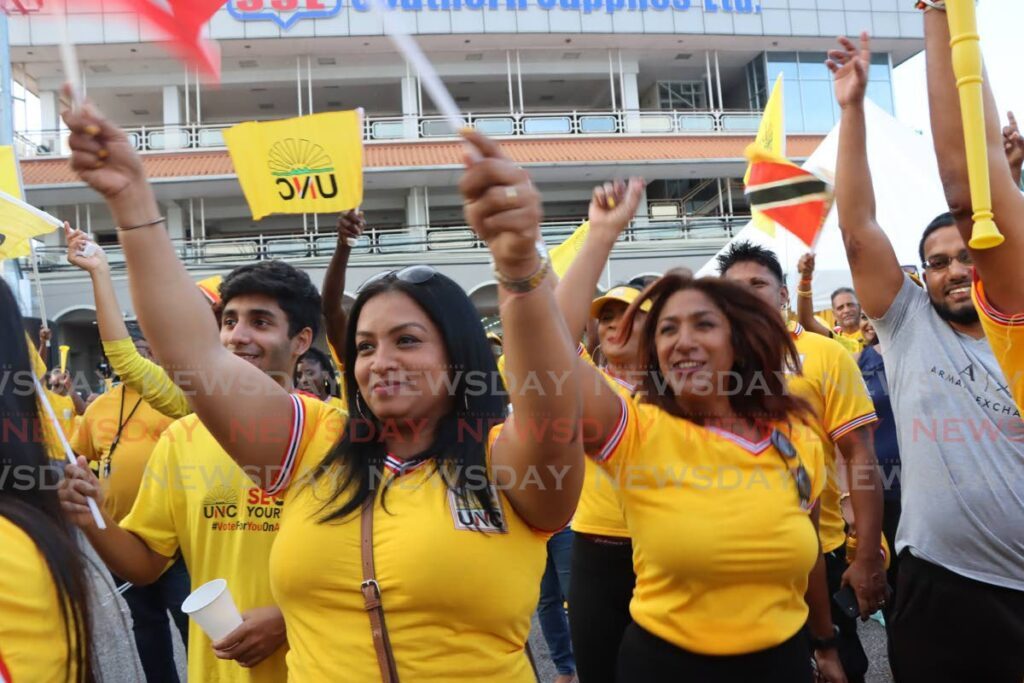Ralph Maraj: Panday was force of change in Trinidad and Tobago politics

AS an actor, politician, legislator and an advocate for the poor and downtrodden, the late Basdeo Panday was a transformative force in the politics of Trinidad and Tobago, Ralph Maraj, who served as foreign affairs minister in his 1995-2000 Cabinet, said on Tuesday.
Maraj, one of the political trioon whom some blame for the collapse of the Panday administration has been ascribed, said his late political leader tried his best to ensure the politics of the country evolved into one more accommodating of the multi-racial, plural society that describes this country.
The other two were former attorney general Ramesh Lawrence Maharaj and food production minister Trevor Sudama, who resigned their portfolios, but not seats, owing to allegations of corruption in the Piarco Airport construction.
Maraj was the only one of the trio to resign both from the Cabinet and his electoral seat of San Fernando West.
Maraj gave examples of Panday’s quest for national unity through various political structures, starting with his pivotal role in the formation of the United Labour Front (ULF), replacing the Opposition Democratic Labour Party (DLP).
“That was an attempt to bring the races and the various forces together. That was a pivotal thing he did in the politics,” he said, pointing to his role in the formation of the National Alliance for Reconstruction (NAR) with late prime minister and president Arthur NR Robinson.
This accommodation sent the ruling People’s National Movement (PNM) into opposition after an unbroken 30-year rule.
“Those were pivotal developments in the country, and without Panday that would not have been possible,” Maraj said.
Club 88 followed, when Panday left the NAR with John Humphrey and others after a political break-up with Robinson, which led to the official Opposition United National Congress (UNC).
Having the distinction of becoming the first prime minister of East Indian descent, Maraj said that propelled him to bring his constituency into the mainstream politics of the country.
“We have to accept that the country constitutes t wo major parties – the PNM and the UNC – and their bases are essentially the peoples of those two major races: the urban African for the PNM and rural East Indian for the UNC.
“That Panday was able to bring the rural East Indians for the first time into the mainstream politics was quite an achievement."
While he continuously struggled for national unity, Maraj said his one regret was that Panday died without achieving his vision for constitutional reform.
“He was passionately committed to constitutional reform because he felt the first-past-the-post arrangement was not working for this plural society.”
Panday was pained, he said, at every election when a whole section of the population was "ostracised."
“He wanted proportional representation so people of all races, whether their parties won or lost, would have a say in how the country was run. That was his aspiration.
"He was a genuine man, genuinely interested in the welfare of the country, the welfare of the poor and the improvement of the society generally.
“We have lost a great man,” said Maraj, who recalled that one of Panday’s mantras was to enjoy life as you go along.
“That was his approach to life. Even when he was fighting for justice, he did it with a certain joie de vivre.”
Maraj, who defected to the PNM and then returned to the UNC, said despite their political falling-out, he and Panday made up.
“I liked him a lot. We met at different times, we talked. I interviewed him. I did not think he held any bitterness to me as a result and neither did I to him.”
He said Panday’s death on January 1, at 90, after a full life, well lived, signalled the end of an era.
“He was the last of the political and social warriors who helped to transform the country from the colonial to modern era.
“He will not die. His legacy, which is the UNC, will continue to be a pivotal force in the politics and life of TT.”

Comments
"Ralph Maraj: Panday was force of change in Trinidad and Tobago politics"